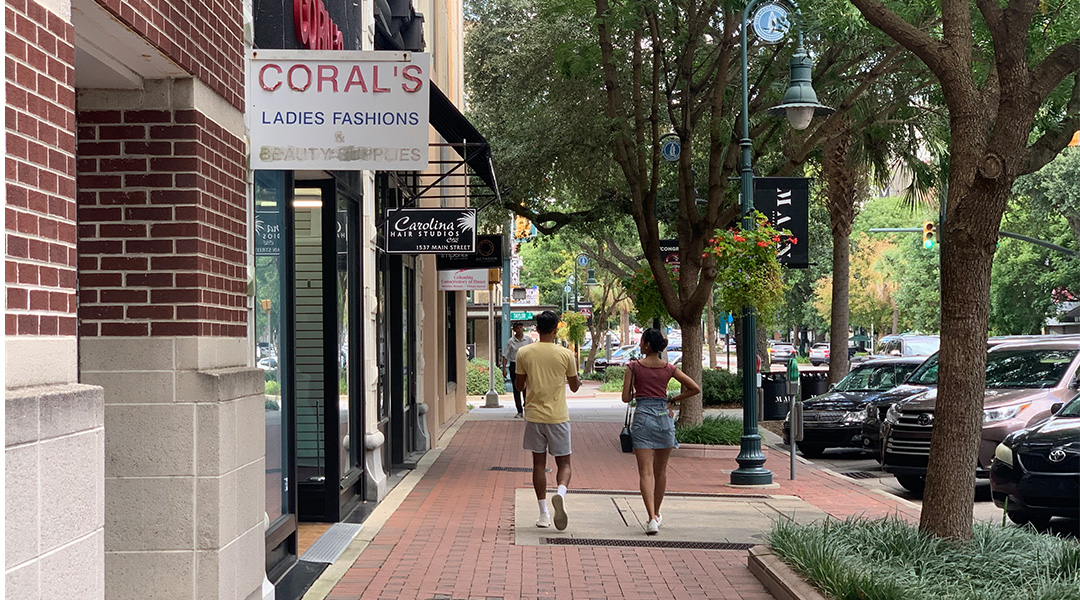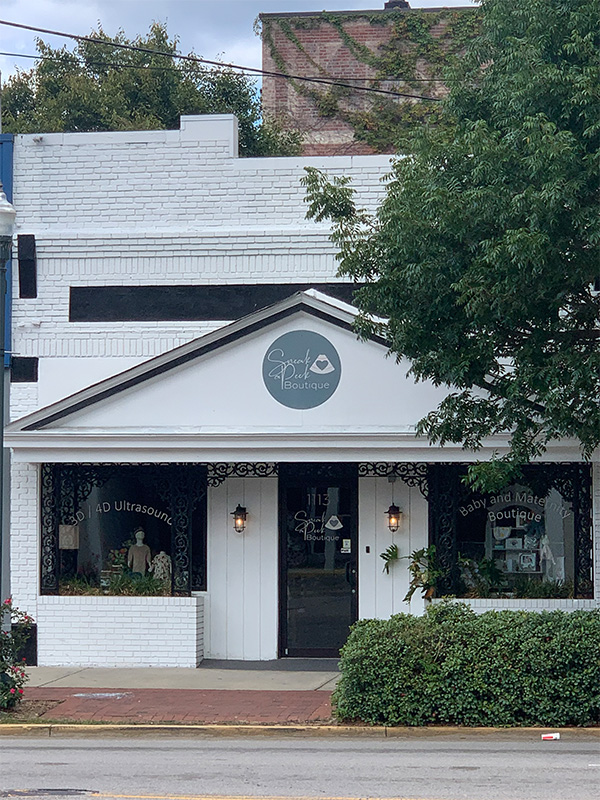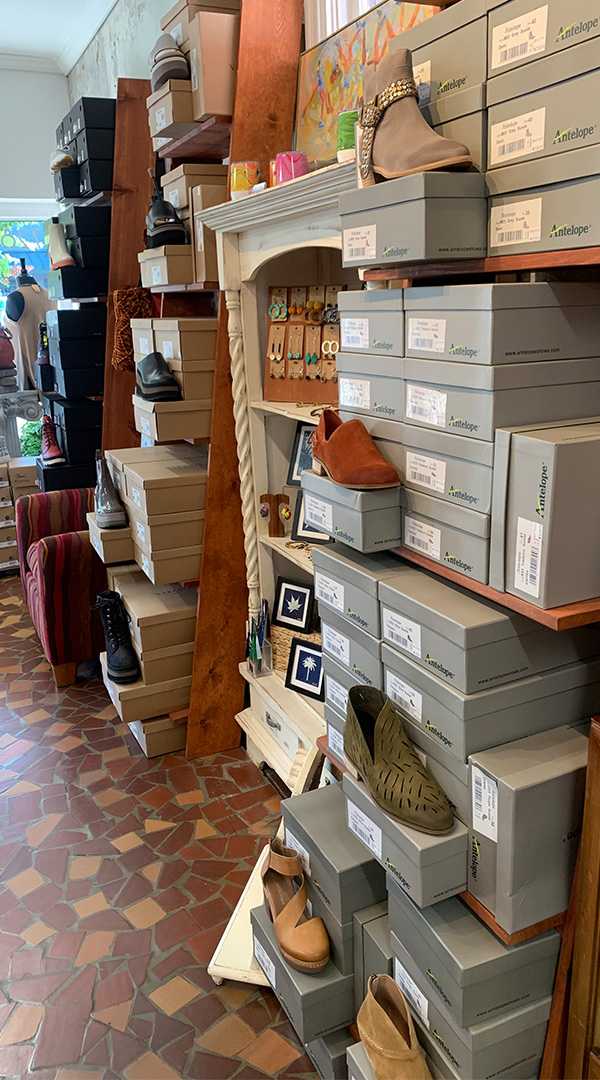Shoppers stroll along the shops on Main Street. (Photos by Addison Hinkle)
Store owners in Columbia have noticed a difference in prices from their suppliers as well as the willingness of customers to spend on their merchandise.
Nationally, the price of all items, besides food and energy, has increased by 6.4% over the past 12 months, according to the U.S. Bureau of Labor and Statistics.
Sneak a Peek Boutique in downtown Columbia has struggled to find customers since opening in January 2022. The store provides ultrasounds and baby clothes for expectant mothers.
“We have noticed that, maybe our merchandise providers, they have had to raise prices and so we’ve had to reflect that,” said Lauren McAllister, a sales clerk at Sneak a Peek.
And traffic in the store has dropped.
“It’s slowed down tremendously in the past few months,” she said.
Jahson Wildes, one of the owners of Natural Vibrations in Five Points, has been in the business for 25 years. Wildes says his business, which sells smoking products and clothing, has experienced dips in the economy before.
“In 2008, when the prior recession started, we didn’t feel it for the first year and a half after they started talking,” Wildes said. “So, we didn’t feel it here until about midway through the recession, so I’m expecting that (again). A lot of people say and are telling us to expect Spring 2023 when we really start to feel it.”
Shoppers, such as fourth-year University of South Carolina student Lauren Yalvac, have held back on unneeded expenditures because of inflation.
“Since prices are going up, I’ve had to go to a stricter budget,” Yalvac said. “I haven’t bought new clothes in a while. I’ve wanted a couple of things, but it’s just everything’s so expensive right now. I’m just kind of waiting on it.”
Businesses are forced to raise their prices in order to make a profit, said USC Associate Professor of Economics William Hauk.
“For some people, it’s going to simply just be hard – there’s not a very easy way around that,” Hauk said. “To the extent that stores are able to, they’re going to try to pass along those increased prices to their consumers.”
At Good for the Sole in Five Points, owner Kelly Tabor has started to expand his inventory to meet customers at what they’re willing to spend.
“I have tried to diversify what I carry,” Tabor said. “So I’m carrying still good quality product, but at a lesser price point.”
Tabor said he buys his shoes from sales representatives from different companies. He has noticed that some of his suppliers are bringing in lower-priced products. One company that typically sells its shoes for $200, for example. But rather than create new designs, it has reintroduced older ones and reduced their prices by 50%.
“I’ve had some companies, like this company, Antelope,” Tabor said. “They’re still doing their boots for you know $200, $190, that sort of thing. But they’ve also come out with a budget-friendly line.”
Tabor has sold more of the older styles of Antelope than its newer models.
“By not having to change up the styling, by not having to learn how to, you know, make the shoes differently, they just switch up the color,” he said.
Natural Vibrations has experienced economic difficulties before and is preparing for the upcoming months.
“We know how to tighten down,” Wildes said.




